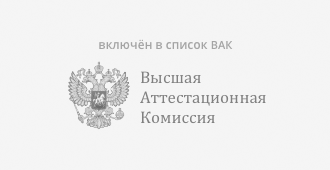Relation-specific investment of the group of companies
Keywords:
Resources, business integration, resource strategy, group of companies, relation-specific investment, cooperative specific investments, selfish specific investments, resource portfolio.Abstract
Despite the deep scientific study of the theory of resource management, there is a lack of terminology consistency in terms of the choice of the most significant resources for the effective operation of companies that make up integration formation. There is a problem of identifying and applying specific assets in the practice of cooperative interaction between
companies.
The subject of the research is the development of a typology of companies’ group resources.
The methodological basis of the study was the new institutional economic theory. According to this theory, the main criterion in making decisions about resources is the specificity. It has been proven that when implementing a cooperative strategy, a group of companies should invest in resources that have specific and idiosyncratic characteristics. Owning and disposing of such assets raises a number of problems, including hold-up problem, significant switching costs of alternative transaction, and reserve utility that causes underinvestment in assets. The study of reserve utility led to the development of an additional classification of specific assets: “selfish” and “cooperative”. A three-dimensional classification of company resources based on transaction frequency, level of specificity, and investment focus is proposed. The paper concludes that in the presence of a large volume of idiosyncratic resources of the cooperative type, the incentives for a rigid form of integration increase sharply. The converse is also true: in a vertical form of integration, it is important to separate the management of specific assets from non-specific ones.
Downloads
Metrics
References
Орехова С.В., Заруцкая В.С. Интеграция бизнеса: эволюция подходов и новая методология // Журнал экономической теории. 2019. Т. 16. № 3. С. 554–574.
Розанова Н.М. Теория отраслевых рынков: учеб. Пособие для бакалавров. Москва: Издательство Юрайт, 2014. 795 с.
Орехова С.В. Ресурсы предприятия: трансформация содержательного фундамента и подходов к управлению // Вестник Омского университета. Серия: Экономика. 2017. № 1. С. 127–14 0.
Бём-Баверк О. Избранные труды о ценности, проценте и капитале. М.: Эксмо, 2009. 909 с.
Pfeffer J., Salancik G. The external control of organizations // Resource dependence perspective. N. Y.: J. Harper & Row Publishers. 1978. Р. 39–61.
Alchian A.A. Pricing and Society // Occasional Papers. Westminster: Institute of Economics Affairs. 1967. No. 17. P. 2–3.
Burney J.B. Firm recourses and sustained competitive advantage // Journal of Management. 1991. No. 17 (1). Р. 99–120.
Kahneman D., Tversky A. Prospect Theory: An Analysis of Decision under Risk // Econometrica. 1979. No. 47 (2). Р. 263–292.
Уильямсон О.И. Экономические институты капитализма: фирмы, рынки, «отношенческая контрактация». СПб.: Лениздат, 1996. 702 c.
Dyer J.H., Singh H. The relational view: Cooperative strategy, sources of interorganizational competitive advantage // Academy of Management Review. 1998. Vol. 23. No. 4. P. 660–679.
Коуз Р.Г. Природа фирмы // Вехи экономической мысли. Теория фирмы / под ред. В.М. Гальперина. СПб.: Экономическая школа, 1995. С. 11–32.
Кузьминов Я.И., Бендукидзе К.А., Юдкевич М.М. Курс институциональной экономики: институты, сети, трансакционные издержки, контракты. М.: Изд. дом ГУ ВШЭ, 2006. 410 с.
Агамирова М., Дзагурова Н. Правомерность вертикальных ограничивающих соглашений с позиции «взвешенного подхода» и характер специфических инвестиций. // Экономическая политика. 2016. Т. 11. № 6. С. 122–137.
Дзагурова Н., Агамирова М. Критерии разграничения эгоистических и кооперативных специфических инвестиций //Журнал институциональных исследований. 2014. № 4. С. 65–76.
Church J.R., Ware R. Industrial organization: a strategic approach. Boston: Irwin McGraw Hill, 2000. 926 p.
Еремеева М.А. Динамическое взаимодействие в условиях последовательного (неповторяемого) инвестирования // Вопросы регулирования экономики. 2012. Том 3. № 4. C. 44–58.
Фуруботн Э Г., Рихтер Р. Институты и экономическая теория: Достижения новой институциональной экономической теории. СПб: Издат. Дом Санкт-Петерб. гос. ун-та, 2005. 702 c.
Дзагурова Н.Б., Невидомская М.А. «Запаздывание» специфических инвестиций как временной аналог недоинвестирования. // Журнал институциональных исследований. 2015. Том.7. № 3. С. 76–91.
Hart O. Firms, Contracts and Financial Structure. Oxford: Oxford University Press, 1995. 228 p.
Агамирова М., Дзагурова Н. Стимулы для осуществления кооперативных специфических инвестиций: от судебных решений к теоретическому анализу // Экономическая политика. 2014. № 4. С. 79–97.
Macleod W., Malcomson J. Investments, Holdup, and the Form of Market Contracts // American Economic Review. 1993. Vol. 83. No 4. P. 811-837.
Che Y., Hausch D. Cooperative Investments and the Value of Contracting // American Economic Review. 1999. Vol. 89. No. 1. P. 125–147.
De Meza D., Selvaggi M. Exclusive contracts foster relationship-specific investment // The RAND Journal of Economics. 2007. Vol. 38. No. 1. P. 85–97.
Edlin A., Reichelstein S. Holdups, standard breach remedies, and optimal investment // American Economic Review. Vol. 86. No 3. P. 478–501.
Ellman M. Specificity revisited: The role of cross-investments // Journal of Law, Economics, Organization. 2006. Vol. 22. No 1. P. 234–257.
Fumagalli C., Motta M., Ronde T. Exclusive dealing: The interaction between foreclosure and investment promotion // CEPR Discussion Papers. 2009. No. 7240.
Groh C., Spagnolo G. Exclusive contracts, loss to delay and incentives to invest // CEPR Discussion Papers. 2004. No 4525. 28. Hart O. Noncontractible investments and reference points // NBER Working Paper. 2011. No. 16929.
Hart O., Moore J. Contracts as reference points // The Quarterly Journal of Economics. 2008. Vol. 123. No. 1. P. 1–48.
Klein B., Crawford R. G., Alchian A. A. Vertical integration, appropriable rents, and the competitive contracting process // The Journal of Law and Economics. 1978. Vol. 21. No. 2. P. 297–326.
Hart O.D. Firms, Contracts, and Financial Structure. New York: Clarendon Press, 1995. 228 p.
Grossman S., Hart O. The Costs and Bene(fi)ts of Ownership: Vertical and Lateral Integration // Journal of Political Economy. 1986. No. 94 (4). P. 691–719.
Hart O., Moore J. Property rights and the nature of the firm // Journal of Political Economy. 1990. No. 98 (6). P. 1119–1158.
Rajan R. G., Zingales L. Financial Dependence and Growth // The American Economic Review. 1998. Vol. 88. No. 3. P. 559–586.
Chung T.-Y. Incomplete Contracts, Specific Investments, and Risk Sharing // Review of Economic Studies. 1991. Vol. 58(5). P. 1031–1042.
Aghion P., Dewatripont M., Rey P. Renegotiation Design with Unverifiable Information // Econometrica, Econometric Society. 1994. Vol. 62(2). P. 257–282.
Noldeke G., Schmidt K. Option contracts and renegotiation: A solution to the hold-up problem // Rand Journal of Economics. 1995. Vol. 26. No 2. P. 163–179.
Baker G., Gibbons R., Murphy K.J. Relational Contracts and the Theory of the Firm // The Quarterly Journal of Economics. 2002. Vol. 117(1). P. 39–84.
Aghion P., Bolton. P. An Incomplete Contracts Approach to Financial Contracting // Review of Economic Studies. 1992. No. 59 (3). P. 473–494.
Dewatripont M., Tirole J. The Prudential Regulation of Banks. Cambridge, MA: MIT Press, 1994. 262 p.
Dewatripont D., Legros P., Matthews S.A. Moral Hazard and Capital Structure Dynamics // Journal of the European Economic Association. 2003. Vol. 1(4). P. 890–930.
Aghion P., Tirole J. Formal and Real Authority in Organizations // Journal of Political Economy. 1997. Vol. 105(1). P. 1–29.
Neher D.V. Staged Financing: An Agency Perspective // Review of Economic Studies. 1999. Vol. 66. P. 255-274.
Smirnov V., Wait A. Hold-Up and Sequential Specific Investments // Rand Journal of Economics. 2004. Vol 35. P. 386-400.
Zhang J., Zhang Y. Sequential Investment, Hold-up and Strategic Delay. Mimeo. 2011. P. 1-16.
Downloads
Published
How to Cite
Issue
Section
Categories
License
Copyright (c) 2021 С. В. Орехова , И. А. Бутаков , В. С. Заруцкая

This work is licensed under a Creative Commons Attribution-NonCommercial-NoDerivatives 4.0 International License.
Авторы, публикующие произведения в журнале «Дискуссия», соглашаются со следующими условиями:
- Авторы сохраняют за собой авторское право и предоставляют журналу право первой публикации произведения, одновременно лицензированной в соответствии с лицензией Creative Commons Attribution, позволяющей другим лицам пользоваться произведением с подтверждением авторства и первоначальной публикации в журнале «Дискуссия».
- Авторы вправе заключать с иными лицами лицензионные договоры на условиях простой (неисключительной) лицензии на использование опубликованного в журнале «Дискуссия» произведения (например, размещение его в базах данных университетов, публикация в книге), со ссылкой на его оригинальную публикацию в этом журнале.
- Автор гарантирует, что является правообладателем всех материалов, предоставляемых в редакцию, и что исключительные права на данные материалы не переданы или не предоставлены другим лицам.
- Авторам разрешено и рекомендуется размещать свое произведение в Интернете до и во время процесса подачи, поскольку это может привести к продуктивному обмену, а также к более раннему и более широкому цитированию опубликованных работ.
С момента загрузки произведения и сопроводительных материалов через раздел "Отправка материалов", автор полностью и безоговорочно принимает (акцептует) публичную оферту о заключении авторского соглашения об опубликовании произведения. В соотвтетствии с этим соглашением автор предоставляет издателю на безвозмездной основе неисключительную лицензию на использование созданного автором произведения.
С момента получения произведения и прилагаемых к нему материалов журнал "Дискуссия" вправе использовать полученные произведения без ограничений по своему усмотрению и в пределах всего срока действия исключительных прав, но с обязательным указанием имени автора (авторов) произведения, в том числе публиковать произведения (полностью или в сокращении) на территории всего мира, переводить на другие языки, направлять в репозитории научной информации, размещать в сети Интернет и использовать другими законными способами.









